Going for Gold: Our Olympic Science Q&A
Why are billionaires racing for space? What is the UK's Covid-19 strategy since "freedom day"? And how will Covid-19 affect the Olympics? This week it's QnA time and with us to explore where weightlessness begins, whether animals other than mammals suckle their young, if the recent findings of methane mean life on Mars, and why the UK isn't vaccinating kids against Covid, are Richard Hollingham, Linda Bauld, Eleanor Drinkwater and Dan Gordon. Plus there's an Olympic-themed quiz to boot!
In this episode

04:52 - Why are billionaires racing for space?
Why are billionaires racing for space?
Space boffin Richard Hollingham told Chris about why so many billionaires are flying to space this week:
Richard - Well, they've been doing it actually to be fair for the last 10, 20 years. It's taken a long time and I think it's more coincidence than anything else. And also COVID; the fact that they got to this stage now. And space tourism's actually been around for quite a long time. We had Dennis Tito flying, Richard Garriott, these multimillionaires flew on Soyuz back at the early part of the century. Other companies have gone. The ones that have sort of survived the space tourism: Virgin Galactic. You had Richard Branson go up the other week. We just had Jeff Bezos, fly in his spacecraft. 10 minute flight that will cost you probably about $300,000. We've now got new entrants into this as well. We talk about orbital flight now. So you've got these two suborbital flights with, so basically you go and then you come back down again, the parabolic flight with Virgin Galactic, with their space, plane and Blue Origin with their space craft, which was, I have to say that if you've got a spare 10 minutes and you haven't watched the flight, absolutely watch the flight.
Chris - You were watching that today, weren't you?
Richard - I was watching that today. Oldest person to go into space, Wally Funk. She's 82. She was one of the Mercury 13. So these were astronauts who took part in a private project to see if women, if women could go into space back in the sixties. NASA rejected the idea, the government rejected the idea. Women didn't get to fly in space with NASA until the 1980s, the first American woman in space, Sally Ride. And of course the Soviet Union had Valentina Tereshkova. So Wally finally got to fly in space and what's extraordinary, Wally is a friend of ours. And she's actually stayed in this very house where I am right now and she's just gone into space and because seeing her come out of the capsule, you know, just exuberant was just so fantastic.
Chris - So she would have experienced weightlessness when she was out there?
Richard - She would, yeah. It's a bit like a roller coaster with these suborbital flights. So it's, when you go over the bump on a roller coaster - I really hate roller coasters, I probably shouldn't go into space - when you go over the top and you've got that feeling of weightlessness, that's what they would have experienced. But with the Blue Origin, I think it was about four minutes of weightlessness they had. Virgin, similar amount of time, maybe slightly longer. So it's the parabola that does that with the weightlessness.
Chris - What did they say when the pair of them, Jeff Bezos and Wally Funk, when they returned to Earth? Did they give any comment?
Richard - Oh, well they were just exuberant. It was a lot of "This is fantastic. What an amazing thing." Wally said at one point "It felt like only five minutes," like she's just complaining. It's still space.
Chris - You'd never guess you're pretty positive. Richard. You're pretty buzzing, I'd say.
Eleanor - Oh my goodness. I just think it's so exciting. Like I'm a bit of a space nerd and I just think it's so cool, but this is a very serious question. Hypothetically, like 10 or 20 years time, how cheap are these prices going to get?
Richard - That is an interesting question because the people behind these projects, I mean, they have put millions into it. They liken it to the origins of aviation. So, you know, you had the Wright brothers fly, you then had biplanes, you had the first World War really accelerated things. But civilians weren't flying. Perhaps they were flying in maybe a little short hop, little sort of tourist flights in maybe the late twenties into the thirties. But aviation didn't really take off until late 50s, 60s, and of course with low cost airlines now. So, you know, the costs of space flight are way more than the costs of a plane, but there is a comparison there. And you think if you started mass producing this sort of technology, you can see how the price could come down and come down and come down. It will certainly be down to the thousands rather than the hundreds of thousands.

08:59 - What is the UK Covid-19 Strategy?
What is the UK Covid-19 Strategy?
Public health professor, Linda Bauld, pontificates on the pandemic:
Linda - I guess a lot of us in public health had been asking what's the UK strategy all the way through it. I mean, I think the UK, like many countries in Europe and perhaps North America at the beginning didn't know what to do and maybe prepared for the wrong pandemic. There's mentions of they were preparing for a pandemic perhaps with something a bit like influenza with flu. So I think we've kind of been lurching through different strategies, which are not the same as, for example, Southeast Asian countries, who'd experienced previous epidemics, where they had a good contact tracing. They knew they needed to ramp up testing. They needed to look at their borders because this virus is something that people pick up and then they transfer it to other people and a really good place to do that would be, for example, if you're traveling from one country to another, of course, you're going to take it there. So the UK has not had a clear strategy at all.
Linda - And the question now is I think what's happening is we're merging two different narratives or stories or beliefs about how to deal with this. There's a camp of scientists, quite a small one, but they still exist that say, well, what you really need to do with an infection like this is to let it go through the population. So people get infected who won't be at risk or will be at lower risk and that's particularly younger groups and they will then build up natural immunity. And then there's another group who think, well, actually we don't want anybody to get this virus. So we need to get everybody vaccinated and keep quite tight restrictions on households mixing, so kind of lockdowns longer than we currently are. And the UK government's trying to meet somewhere in the middle. We've had two big lockdown periods, three depending where you were in the UK. And now they've decided because it's the summer, they're going to open things up when you've got all of the adult population who've been offered the first dose of a vaccine and two thirds, almost two thirds, who've had a second dose. And so that seems to be the current plan, but I guess the really challenging thing about it at the moment is we are opening up so-called "Freedom Day" in England with all legal restrictions lifted at a time where we have over 50,000 cases a day and projected to go up to over a hundred thousand and some of our hospitals are under strain. So it's really, really tough.
Chris - And would you therefore say that in fact it's the wrong manoeuvre?
Linda - Well, I think there's different harms from this virus. I think all young people in particular will know that the harm to them. Small numbers have had their health harmed, but they've lost education, social contacts, lots and lots of restrictions. And then of course you've had jobs that have been lost. Employment has suffered. People have had mental health issues they've had to deal with. These are other kinds of harms. And then we've been cut off from our loved ones who live in other countries and haven't been able to travel. So I think the government is really emphasizing that at the moment. If you were just looking at my field, public health, and the priority for us is to protect the health of the whole population and the health of the whole population is under challenge from a pandemic, you would deliver more vaccines. You would keep restrictions in place for longer, until we were more confident about the way ahead. That's not the path that government has chosen. And now we're in a big natural experiment. The world is watching and we'll see what the outcomes are.
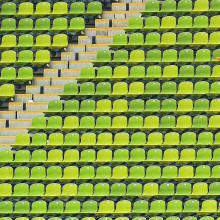
12:40 - How will Covid-19 impact the Olympics?
How will Covid-19 impact the Olympics?
Exercise physiologist and world record holder Dan Gordon chatted with Chris about this year's Olympics:
Dan - Yeah, and I think if you ask most people in the general public, "Are you aware that the Olympics are taking place?" I suspect most people would be unaware. I mean, there's been very little in the media. There's been very little push through the broadcasting organisations about it and it's not surprising. I mean, you look at the way the Olympics are going to operate. It's a very, very different environment. There will be almost no crowds in stadia. The velodromes will be empty. The pools will be empty. And I think they're allowing, for some of the sports, very small numbers of spectators in. And then of course, we've got the fact that the metal ceremonies will not be standard medal ceremonies. The participants are in fact going to award themselves the metals and they're not allowed to kiss the medals. Even with the opening ceremony, which is always a massive affair, it's kind of which country can outdo which country, is going to be a very low key affair. And so I think it's going to be a very, very low key game and they have started to already be, not outbreaks, but there are cases of COVID within the Olympic Village arising already.
Chris - I suppose one incentive to win a medal is that those precious metals are naturally anti-microbial aren't they? So you could use your medal for that if it came to it. Are they going to have a Paralympics this year?
Dan - That's a really good question. I mean, at the moment, yes, it's scheduled to follow within a couple of weeks of the Games, but concerns also been raised because a lot of the Paralympians are in what we've considered more of the at risk population groups.
Chris - Well that was my point, that we're going to have groups of people who are potentially a bit more clinically vulnerable. They're also probably going to have more of an entourage of supporting people who they need to help them do their day to day things aren't they? So it's, it's an even bigger issue for them.
Dan - It's a bigger issue. It's a much bigger risk and I think it will be a wait and see. If the Olympics goes off without a relative hitch, I think you see the Paralympics happening.
Richard - Yeah, I just wondered about, you talked about the lack of atmosphere, the lack of crowds, what the psychological impact of that is on the athletes.
Dan - I suppose if I give you the reverse answer, the effect of London, when we hosted the games in London, you saw the effect of a home crowd and 85,000 people in the stadium and athletes like Mo Farah saying that really had even had not had the crowd when he won his second gold medal, he probably wouldn't have medalled at all. There is something about it, isn't it that we thrive and people thrive on that kind of environment. And that's where we get these superstar performances happening. I just think it's going to be a very, very strange atmosphere. The officials aren't allowed to cheer. They're not allowed to do the haka in the rugby sevens anymore.
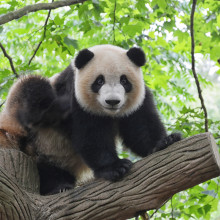
17:35 - Does animal personality affect conservation?
Does animal personality affect conservation?
Wildlife biologist Eleanor Drinkwater discussed animal personalities with Chris:
Eleanor - Animal personality as a field is kind of still very rapidly developing. And for me, it's just a really, really exciting area. And it is a really big question. There's been a few really interesting studies done looking at the personality of animals and how they survive post translocation. But that the problem is it's quite complicated. So for example, they took a bunch of swift foxes and they released them and the bolder ones tend to perish more quickly, which I guess, you know, they're not afraid of predators, they're not afraid of humans. However, on a separate study on turtles, they found that the more explorative ones tended to do much better. And then a third study on Tasmanian devils suggested that the shy ones did worse. And so it seems to be the case that perhaps personality is very important, but it's very context specific. What context are these animals going in? And how does that context affect what will be a useful survival strategy? And then on top of that, how do the different personalities interact together? Because if you have a group of animals with different personalities, individuals within that group will affect each other. It's not just that you have half bold and half shy and you'll get a halfway house. Actually, it's much more complicated than that. So it's a really fascinating question at the moment. And I think it's one that's kind of still under the microscope. And so if we can get a better handle on that, then it might be able to help us to understand how we could use this for conservation.
Linda - Eleanor, in terms of animal personalities, and thinking about the experience of being in captivity, is there a common feature in terms of how animals' personalities might change as an experience of that? Is it cuts across species when we then look at contrasting that with how they would be in the wild?
Eleanor - Personality is a bit complicated in how it's determined. So you do have an underlying genetic component, but there is also evidence that the developmental conditions of an animal can affect its personality. So for example, if you take crustaceans and you put them in a completely barren tank without any enrichment, they don't behave like an animal that's grown up with a very enriched environment. They don't know to use shelters or have the bold/shy behaviours that we might expect. So that's one thing. Another one, which is also fascinating is studies in birds have shown that the level of stress that individuals are under when they are in the nest will have a big impact on how they then develop and what their personality might be like in life. If you're thinking about that in the context of how one might be keeping an animal in captivity, thinking about what stress this animal might be on, it might be under less stress than it is in the wild, or it might be under more stress than it is in the wild and what impact that might have.

20:50 - At what altitude does weightlessness begin?
At what altitude does weightlessness begin?
Space science junkie and journalist Richard Hollingham didn't get weighed down answering this question:
Richard - Well, as you move away from any object, gravity is going to decrease. If you were in deep space, for example, away from any planets and away from any black holes, stars, anything that would have a lot of gravity, then you would be weightless. You would be able to float around. On the International Space Station, there is only about 90% of the gravity on Earth. So there's actually something else going on here, what they call microgravity in space. And actually if you were on the International Space Station or on one of these parabolic flights, the astronauts are in free fall. So with a parabolic flight, you're going up, over, round, out of the atmosphere and back down again. In that period at the top of the parabola, you've got weightlessness. You're falling back down to Earth. You've got the weightlessness. It's like going on a rollercoaster. But with the International Space Station, what's happening there is you're falling around the Earth. So it's because the space station is going so fast but it's going to hit the ground.
Chris - And therefore it's not so much about the altitude. It's more about how long you're falling for. So when you've got these craft climbing up, such as Wally Funk would have experienced, when we recorded this programme today, she would have gone up, gone over the top of the rollercoaster, as it were and started to come down. The higher she went, the longer she would have had to fall for and therefore experience weightlessness. But if she'd gone to a less high height, she could still have felt weightless. It just wouldn't have lasted so long.
Richard - Yeah. absolutely. And with that flight, you had about four minutes of weightlessness.
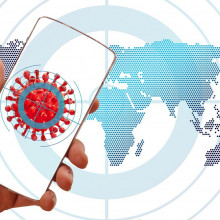
22:48 - What's causing the UK Pingdemic?
What's causing the UK Pingdemic?
Public health guru Linda Bauld talked to Chris about the 'pingdemic':
Linda - Well, it's interesting, isn't it? In fact, in a single week, over 500,000 people got a ping, a little message on that app and were advised to self-isolate. So these people are people who have been contacts of what we call the index case, which is the first positive case. So somebody tests positive, they have the virus, and then the app finds out who they'd been close to, normally around less than two meters for 15 minutes or more. There's other ways of identifying contacts, where you would ask the person who is the positive case, who have they been in contact with? The reason this is happening is just because as I was saying earlier, we've got so much infection in this country: over 50,000 cases at the moment. Just to put that in another context, that's 1% of the UK population. It's about one in a hundred people, even lower than that in some parts of the UK.
Linda - So if you then multiply, say when we're not in lockdown, I might have on average 10 contacts in that week. Um, and so you can see that that's what adds up the numbers. The government is talking about changing that. Singapore is also discussing this in some other countries. If we're going to live alongside COVID, particularly moving out of pandemic to endemic, we're still going to have people who test positive who might have to self isolate, but can we for their contacts, give them regular testing instead, so that we know whether they will develop the disease COVID-19 or not. Because actually most contacts of positive cases don't actually go on to develop it in these contact tracing systems. So let's look ahead. I don't think it's going to continue indefinitely, but for the moment that's the system that we have
Chris - Anyone been pinged on the panel?
Eleanor - Earlier. Not recently, luckily, I was very impressed by the lovely people who would call up and check in and check I had enough food and everything was okay. I was very impressed by the call handlers.
Chris - Ah so you got the phone call to say you'd been in contact. Did you actually get COVID or did you escape?
Eleanor - No, no, I didn't. No, I didn't. I didn't get COVID
Chris - But you did get reassuring phone calls about, are you alive?
Eleanor - Exactly, it was very reassuring.
Chris - I didn't realise they did that. That that's quite nice. Isn't it?
Linda - How did you find not being able to leave the house for 10 days then Eleanor? That's tough, isn't it?
Eleanor - Yeah, I found it very challenging and I live in a flat without a garden and that kind of thing. So I think it is very challenging psychologically, and I'm sure a lot of people have found that.
Richard - Does this mean that the pandemic, or is there a point where the pandemic becomes out of control or do you never want to say that? I mean, because test and trace can only work to a certain degree with a certain number of people. When you get certain number of cases, you can say, well you do, that whole idea of sort of let it rip through the population.
Linda - Yeah, well acutally in the UK's response, that was part of the story early on Richard, in that one of the reasons why the UK government didn't scale up contact tracing say last spring, in a way other countries does because they had so many infections early on, they just didn't think it would be viable. So when you do have a lot of infection, it's really difficult. It's easier to contact trace when you have far fewer numbers. So there's a big question about that. And we can see the performance of the system is taking longer for people to be identified. And just final point on this, on the pinging, a lot of people who are getting pinged now, they're not being advised to isolate for 10 days. They're being advised to isolate for say three, four or five days, because actually it's 10 days from the day they came in contact with the person who's positive. And if contact tracing is under strain it's taking longer to let the contacts know

28:08 - Olympics Themed Naked Science Quiz
Olympics Themed Naked Science Quiz
Now the Tokyo Olympics kick off this week, so we have an olympic-inspired quiz for the panel; public health guru Linda Bauld, exercise physiologist and paralympian Dan Gordon, wildlife expert Eleanor Drinkwater, and space science junkie Richard Hollingham.
Chris - So we've got two teams, Dan and Richard, you're going to be team one, and Linda and Eleanor, you're going to be team two and you can of course confer. It is the Tokyo Olympics. So I've got an Olympic inspired quiz for you. Dan and Richard, you're going first. Round one is long distance. So if Elon Musk's rocket goes off course one day and it takes him to Mars by mistake, how long, Dan and Richard, would his Mayday radio signal from Mars take to get back to Earth? Is it A) 20 minutes, B) 40 minutes or C) 60 minutes? What do you reckon?
Richard - It depends on the distance between the planets at any one time, because obviously the planets move around the Sun and those distances between Earth and Mars change. I would go for 20 minutes.
Chris - And Dan, are you in agreement or are you deferring to Richard?
Dan - I will bow to the superior knowledge on this, but I suppose I was thinking back to my H.G. Wells and War of the Worlds. I was going to the other end of the spectrum 60 minutes, but I'll bow to my compatriot and his superior knowledge.
Chris - Dan, you made the right call because it is 20 minutes. It does vary, Richard's right, because Mars is between 78 million and 378 million kilometres away from the Earth because some points in its orbit it's close to us, at other points in its orbit it's on the other side of the solar system. And so therefore signals from Mars to the Earth can take anything between three and 22 minutes to get back to the Earth. So 20 minutes was the closest answer. That's the right one. One point to you two. Linda and Eleanor. Your question. When Apollo 15, and you'll see Richard why you didn't get this question, when Apollo 15 made it to the Moon this week 50 years ago, how long were their radio signals taking to get back to the Earth? Was it 0.5 seconds, 2.5 seconds or 12.5 seconds? What do you both reckon?
Linda - Oh, I think it wasn't that long actually, I'm getting my knowledge from watching the film, which I don't think is pretty reliable, but there's sort of a pause, isn't there, when they're hearing from the astronauts. I kind of feel that the laws would say that it's probably not the middle answer because it was the middle answer when you asked the boys! I would say it's probably 2.5 or 12.5. What do you think, Eleanor?
Eleanor - I think it's going to be on the longer end of the spectrum.
Linda - Shall we go for 12.5 then? Okay. Let's risk it.
Chris - Richard, the answer is?
Richard - I'm going for 2.5.
Chris - You would have been right! It's 2.5 seconds. Sorry, Linda and Eleanor, I'm afraid it was 2.5 Seconds. Right, see if you can redeem yourselves on the next round - Round 2, we're onto weightlifting now. Heavyweights, Dan and Richard, as you are now in the lead with 1 point - relative to their body size, which of these animals can lift the most? A, a dung beetle, B, an Eagle or C, a gorilla.
Richard - I'd be tempted on the dung beetle
Dan - I would've thought - I mean, I know the gorilla's pretty strong, but I mean a gorilla's pretty hefty. I think we can rule the gorilla out. I mean, an eagle can lift quite large prey, but there's something about that dung beetle and the size of dung. Yeah, I think dung beetle.
Chris - Yup! You get a point! Would you have said that Eleanor?
Linda - That was way too easy!
Chris - You haven't had your question yet, hang on! You are right, you two. Dung beetle was the correct answer. Eagles are the strongest birds. They can actually lift 4 times their own bodyweight off the ground. Gorillas, get this, can lift an incredible 2 tons, which is 10 times their weight. But the dung beetles clinch it because they roll around piles of poo that actually weigh a thousand times more than they do, so they are certainly the winners this week of the heavy lifting contest, right? Linda and Eleanor - relative to their body size, which of these animals can lift the most A, a grizzly bear, B, an ox or C, a tiger?
Eleanor - Oh, I probably guess the ox?
Linda - I was going to say that Eleanor, because that's an animal that we use - traditionally people have used the ox as a lifting animal, haven't they, or dragging animal or something that would help people carry things. So I wonder whether that's why that's the right answer. Yeah, I think we'll go for the ox!
Chris - *Sad trumpet sound*
Eleanor - No!
Linda - We can't let the boys win!
Chris - I think that's something of an inevitability now, unfortunately! Grizzly bears can shift 500 kilos, so half a ton, that's 80% of their weight, quite a lot! "As strong as an ox," as you were sort of suggesting, that would have been a good call because those stocky ruminants can lift 900 kilos, that's 150% of their body weight. But a tiger can drag half a ton up a tree, and half a ton is twice the tiger's weight. So the tiger body size to weight is the strongest of those 3. So you should have chosen that! We'll do round 3 anyway, just to see if the boys can get a gold medal across the board. This is round 3 - water sports. So grab your Speedos, Dan and Richard, you're up, and to make this a fair comparison, we are doing this in terms of body length per second. We want to know who swims fastest, in body lengths per second, a mako shark, a bluefin tuna, or the probiotic Bdellovibrio bacterium?
Dan - Wow, that's a tricky one. That is cheeky!
Richard - Bacterium is just going to have little cilia on it, isn't it...
Dan - I think the probiotic, I was fairly comfortable at that point, I think, but I think the probiotic, I've just got a sneaky suspicion
Richard - I think you're right. I think we've been consistent that we can just go with the smallest one, I think.
Dan - Let's go with it!
Chris - Going with the bacterium?
Dan and Richard - Yeah.
Chris - Yes, that's the right answer! Makos are the fastest sharks, they can swim over 74 kilometres an hour. A bluefin tuna will cruise along a good 70 kilometres an hour. Now based on the length of those fish though, that's about 6 to 10 body lengths a second. But Bdellovibrio, which are these bizarre parasitic bacteria that invade other bacteria, drill holes in them and grow inside them before bursting out and finding more bacteria, they can swim along at 100 body lengths per second. You're a world record holder, Dan. So are these, they're in the Guinness Book of World Records so I'm told as the world's fastest swimmers, 100 body lengths a second, really quite a feat. Now let's see if you can get yourself a little bit of redemption, Team 2, Linda and Eleanor, you might get a bronze medal out of this one - who can stay on the water the longest - a beaked whale, Croatian Guinness world record diver Budimir Šobat, or an alligator?
Eleanor - I'm guessing it's not going to be the person.
Linda - No.
Eleanor - So it's between the alligator and the whale. I want to say whale, but I feel like this is going to be a trick question. Given our track record, what do you think, Linda?
Linda - Yeah. Well, I was going to say the whale. I'm just trying to think about how alligators behave. They can disappear for quite a long time, can' they. I think the tricky thing is because we don't probably know much about that whale species - the beaked whale. Do you know much about them?
Eleanor - No, I don't
Linda - Think though, if you think about whales, the depth they dive too, you know, for ages, don't they to feed?
Eleanor - I feel like the whale's too easy. I'm thinking it could be the alligator because it feels like a trick question here
Linda - Okay. Well, we'll go with the alligator, but I think it's the whale. Let's go with the alligator.
Eleanor - Okay. Okay. What is it, Chris?
Chris - And it's the right choice, yes!
Linda - Hooray we got a point!
Chris - Croatian Budimir Šobat has actually just set a new world record this March. He managed to remain underwater for an incredible nearly 25 minutes. A beaked whale is the longest submerging mammal, it can stay down at depths of about 2 miles for nearly 4 hours, but the alligator's on the top of the podium for this particular race - he has, or she has, the ability to stay under there for 24 hours if needs be. So congratulations to Team 1, Dan and Richard, you get this week's gold metal with 3 out of 3. You are the Naked Scientists Big Brain of the Week Award. We'll give a bronze medal to Linda and Eleanor for being jolly good sports, you did get off the blocks with your final answer.
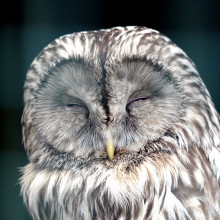
37:34 - How do athletes cope with time zone differences?
How do athletes cope with time zone differences?
Exercise expert Dan Gordon spoke to Chris Smith...
Dan - It is. And it's one of those issues that you face when you've had any major sporting tournament. And one of the things that we understand about somebody's chronobiology is that in essence, for every time zone that you cross, it takes one day to reacclimatise to that new time zone. But most Olympic teams will actually have gone out early, I mean, Team GB are actually out already in Japan and they're in what are called 'holding camps'. And so they go into the holding camps primarily to aclimatise to the environmental temperatures, but also to actually overcome things like the jet lag. So you would hope that unless you've got athletes who are flying in very, very late that the jet lag shouldn't be such an issue. What does become an issue, partly linked, is the natural circadian rhythm of the individual. Because we understand that naturally, we perform better athletically later in the evening. So we actually tend to perform very well between about 7 - 00 and 11 - 00 PM in the evening. And a lot of criticisms would have been raised because, well, surely that's when television wants us to watch those kinds of events. But we saw the actual reverse of that - when the Olympics were in Beijing, you may remember back to Beijing, there was that extraordinary American swimmer Michael Phelps. And Phelps was going for 8 golds in the games, and the American broadcaster NBC, who owns the rights to the Olympics, wanted to make sure that everybody in America could watch Phelps. So for the first time in Olympic history, they reversed the timings. They put the finals in the mornings and had the semifinals in the evenings. And it was really interesting to note that there were no world records broken in any finals, which took place in the mornings, and world records were broken in the semifinals.
Chris - That's good to know, so next time we record one of these programs, you guys, we'll get you all back at 11 o'clock at night, because we'll get an even better performance! I think we're doing quite well today, though. It's going pretty well. Isn't it?
Linda - Well, we might've won the quiz if it was 11pm!
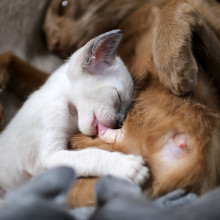
40:55 - Do any animals other than mammals suckle their young?
Do any animals other than mammals suckle their young?

42:57 - Did the Apollo 15 Astronauts break the rules?
Did the Apollo 15 Astronauts break the rules?
Space boffin Richard Hollingham filled Chris Smith in...
Richard - Yeah, and I think that this group of astronauts, so Dave Scott, Jim Irwin, and Al Worden, got badly maligned, and they got chosen, really, as scapegoats by NASA for what they did. So every astronaut before that mission took things into space. Astronauts take things into space now, and along with their personal possessions. And astronauts were taking objects like stamps, first aid covers with stamps, medallions, all sorts of things. And they have value, of course, once they'd been in space, particularly if they'd been to the moon, and they bring them back to earth. And this was almost like a pension policy. You can see these on auction sites going for hundreds of thousands of dollars some of these things, particularly the Apollo 11 mission to the moon. Whereas, you know, Apollo 15 did the same thing. They did a deal with a stamp dealer, took some stamps to the moon, brought them back. The problem was, and how they got found out essentially, was those stamps then went on the market straight away, and they were promised that wouldn't happen. So I think they got badly maligned, because let's look at the achievements of Apollo 15, which was the first J class mission, the first real science mission, to the moon. It had a lunar rover, it had the first deep space walk - I mean, you know, spacewalking we see that on the International Space Station, but this is in deep space on the way back from the moon! I mean, it's crazy. It's absolutely crazy stuff. Al Worden did the spacewalk alongside the Apollo capsule to retrieve some samples from the command module. And they also did this experiment proving Galileo... It was, it
Chris - It was the modern day equivalent of the Guinea and the feather experiment that they did?
Richard - Yeah so, they just got on the moon, dropped a feather and a hammer, and they both hit the surface at the same time. Really cool experiment. You can see it still on the NASA website on YouTube. It's really, I mean, you watch it now - it's still amazing. Because you think, no, surely the hammer's got to hit first, and they just hit exactly the same time. Very cool experiment, very cool mission. And it's a shame that they sometimes get remembered for the stamps.
Chris - They never flew again, any of those astronauts, that never went up again, did they? And so some people were saying it was that that got them on the wrong side.
Richard - Yeah. Certainly, with Al Worden, his book which was, it's just a great book, it's sad that he died just over a year ago. He wrote a lot about this. He's written very honestly about this in his autobiography. But he also had, and I think this is a problem some of the other astronauts had, he had a life beyond the moon. It's that whole thing, what do you do after you've gone to the moon? Some had problems with alcoholism. Others turned to religion. He had always had trouble with NASA. I mean, he stayed on at NASA actually, and had a great career at NASA and never went to the moon again though. But he had a life beyond the moon and actually, you know, came out of it pretty well. And in court cases, they subsequently won against the space agency, you know, that they were badly treated.
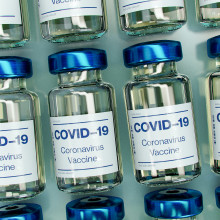
46:16 - Why is the UK not Covid-19 vaccinating children?
Why is the UK not Covid-19 vaccinating children?
Public health expert Linda Bauld filled in Chris Smith on answer, and answered a question about long COVID from exercise expert Dan Gordon...
Linda - Well, we have the Joint Committee on Vaccination and Immunisation, which is a group of independent scientists, clinicians, and other experts who guide the government and what the NHS does in relation to immunisation and vaccination. So we have a medicines regulator that has approved the vaccine for 12 to 15 year olds on the basis of a trial done in the US involving over 2000 young people. And this is just one vaccine, the Pfizer BioNTech vaccine. But the JCVI have decided that at the current time, they're only going to recommend it for particular groups of children, about 370,000 of them in the UK. And these are the kids who are most at risk from COVID-19. So they might have an immune system that is not functioning as fully as it should. They may have severe learning difficulties, for example, or a range of other conditions. So they're going to vaccinate those young people between 12 and 15, children who already have those conditions between 16 and 17 are already eligible. But they're also interestingly going to offer the vaccine to those children who live with people whose immune system is compromised. For example, they might've had cancer treatment, which meant that the parents took drugs to deal with the cancer, which affected their immune system. Internationally this will be controversial. Canada, the USA, and Algeria was the first country, Israel, some countries in Europe are already vaccinating teenagers. I think the rationale is risk-benefit. They're saying there may be some signals that there may be some very small risks from this vaccine to younger people, but because the risks of becoming unwell with COVID-19 are so tiny for this age group of children, that those risks might in some circumstances outweigh the benefits. I think we'll have to see how this goes. It's great these kids are going to get as soon, but in the longer term, we want to reach what we call population immunity, particularly when we have more transmissible variants like the Delta, we may actually need to vaccinate teenagers in the future because we know they can pick up the virus and we know that they can pass it on.
Chris - Dan?
Dan - What is the evidence about long COVID? There seems to be this evidence suggesting that actually, children are perhaps more susceptible to long COVID and therefore is the necessity then perhaps to vaccinated against that?
Linda - They're not more susceptible to long COVID, they can develop long COVID. But if you look at the studies that have been done, we're starting to get population-level evidence on the incidence of long COVID which is often defined as having symptoms beyond 12 weeks beyond having a positive test. So not less likely, it's actually age-related as well with long COVID. You could see that people over the age of 50 are more likely to develop it than younger people, but younger adults in particular. And we estimate about 1 in 6 people in their 20s who've had COVID-19 might have long COVID. So kids are less at risk, but they're not, you know, protected from long COVID, there may be small numbers to still get that.

49:27 - Will fewer Olympic records be broken owing to Covid-19?
Will fewer Olympic records be broken owing to Covid-19?
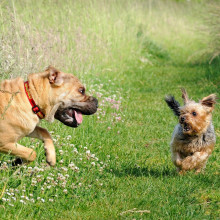
52:37 - How do animals know how to scare off predators?
How do animals know how to scare off predators?
Animal expert Eleanor Drinkwater explained...
Eleanor - It's a deep area of controversy at the moment in the animal behavior community. The idea is that a prey animal intentionally startles its predator. It could be that it lets out a noise that causes a fright, or it could be a colour display, or it could be a smell, or it could even be bioluminescence. There's a range of different things. The really difficult thing is how is this working? For example, there's the hypothesis with some of the lovely moths you see with the big eyespots that's they are trying to frighten their predator by thinking that there's another predator there. And so it could be that kind of almost mimicry, which is causing this kind of surprise. Or it could be that it's just the kind of blinding flash of kind of colour and noise which triggers fright, but ultimately it's something which is very difficult to measure. But interestingly, this is often tied in with the knowledge of the predators. And so this is something else which is currently under investigation, and it could be the case that some of these kind of startle defenses work really well on naive or kind of young individuals, but then wear off as the kind of predator becomes wise to it. So it's a really interesting area of research. That's a really, really good question.

54:09 - Does methane mean life on Mars?
Does methane mean life on Mars?
Space boffin Richard Hollingham gave Chris Smith his thoughts...
Richard - It's one of those classic examples where scientists can hold their hands up and say, we don't know. The first hints of methane were actually found by the European space agency's Mars express spacecraft quite a few years ago now. And now the curiosity Rover, the NASA Curiosity Rover, which is obviously trundling along the ground on Mars has also detected methane. But the trace gas orbiter, so another spacecraft in orbit around Mars, has not detected this methane in the same places. So it could be that there's a fault with Curiosity with the sensor, or there might be methane, but it's not quite making it to the 3 or so kilometres where the trace gas orbiter can detect it. So the might be methane there might not is the answer to the question. And the reason of course everyone's excited about methane is it could be an indicator of life, it could mean that actually, something is producing methane the way that we do, cows do. And the other weird thing is that methane should, according to the way that Mars atmosphere works, it should last for about 300 years on Mars. So again, there's a mystery as to why the trace gas orbiter in orbit around Mars is not detecting methane if the planet is constantly producing it.
Chris - This would therefore be what - some pockets of microbes that have the metabolic machinery to turn organic carbon rich stuff into methane and that would indicate that they are there doing that. That's why this matters?
Richard - That's why it matters but it could be some sort of geological process as well, so we really don't know
Chris - So how will they investigate? How will they find out what this is?
Richard - Well it's like all these things, the more experiments you can throw at it the better. I mean, we've got new experiments going to Mars, new rovers going to Mars all the time. At the moment what's at Mars has not got the capabilities to prove one way or the other, but we're just getting these tantalising glimpses continuously. And this has been over the last 10 years that there is methane there. As to where it's coming from, we probably won't start knowing the answers to this until we can either go to Mars ourselves or bring samples back from Mars in one of these likely areas. Maybe that'll give hints that there is some sort of, or had been some sort of, life there
Chris - Exciting times, isn't it. We watch with interest to see what happens.










Comments
Add a comment